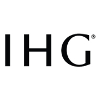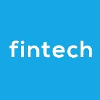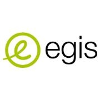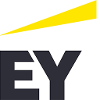Result of Service
The following results are to be achieved: Research paper on Leveraging Islamic Finance for Achieving the Sustainable Development Goals Deliverable 1: "Global Experiences with Sukuk: Best Practices and Recommendations for Bahrain" containing an analysis of global Sukuk issuance, including their compatibility with SDG financing principles and recommendations for Bahrain’s regulatory framework. Deliverable 2 : "Strategic Framework for Bahrain’s SDG Sukuk Issuance" containing a framework for issuing SDG Sukuk in Bahrain, integrating findings from global experiences, local regulatory assessments, and collaborative efforts with the Impact Investment Consultant. Performance Indicators a. Quality and timeliness of drafts provided b. Evidence-based, actionable recommendations tailored to Bahrain’s context. c. Effective collaboration with the Impact Investment Consultant to produce cohesive findings.
Duties and Responsibilities
Background At the half-way point of the 2030 Agenda for Sustainable Development, only about 15% of targets are on track; around 50% are moderately or severely off track; and some 30% have either seen no movement or regressed below the 2015 baseline. At current rates, only 30% of all countries will achieve even SDG 1 on poverty by 2030. Hunger has increased and is back at 2005 levels. Gender equality is some 300 years away. Financing gaps for sustainable development are large and growing – the estimates by international organizations and others are coalescing around USD 4 trillion additional investment needed annually for developing countries. This represents a more than 50% increase over the pre-pandemic estimates. Public and private stakeholders around the world have been exploring and developing new innovative financing solutions, such as blended finance, impact investing and green finance. The Islamic finance sector that emerged as an effective mode of financing sustainable development, has experienced substantial growth in recent years. Today, more than 500 Islamic banking and finance institutions are operating worldwide, which are claimed to manage assets worth around USD 2.9 trillion, while the assets held in these institutions were a mere USD 10 billion in 1985. Islamic capital markets have demonstrated unprecedented success in generating finance for corporate and public sectors. Sukuk (Islamic bonds) have been a particularly important Islamic capital market instrument in development finance and infrastructure development projects. Sukuk issuance has grown in many countries, including non-Muslim majority countries, since the first Sukuk issuance in 2001. By the end of 2020, total global Sukuk issuance reached around USD 1.4 trillion. The core principles of Islamic finance – channeling funding to the real economy, avoiding excessive speculations, and limiting debt to the value of assets are highly aligned with the spirit of the Sustainable Development Goals. The Islamic Development Bank (Is DB) found Islamic finance to be especially relevant in addressing ten of the 17 SDGs, including goals pertaining to poverty alleviation, infrastructure development, financial stability, and beyond. Sustainable Development Goals have also affected the Islamic finance industry to develop sustainable and green financing structures such as green Sukuk. There has been a dramatic increase in green Sukuk issuance, mainly taking place in Indonesia, Saudi Arabia, Malaysia and the United Arab Emirates. While many countries have made a progress in mobilizing Islamic finance resources for the achievement of the Sustainable Development Goals, this innovative finance modality remains largely untapped due to fragmented approach and limited capacities. Specifically, there is a significant potential to apply more increasingly impact investments and other sustainability-oriented investment and financing mechanisms in Islamic finance. Bahrain, as a regional leader in Islamic finance, is uniquely positioned to leverage its financial expertise and infrastructure to integrate Sukuk with the SDGs. By exploring the synergies between Sukuk and sovereign SDG bonds, Bahrain can pilot innovative financing mechanisms that align with Islamic financial principles while addressing critical development challenges. This consultancy aims to evaluate the compatibility of Sukuk with SDG bonds, assess Bahrain’s readiness to issue SDG Sukuk, and provide actionable recommendations to enhance the country’s capacity to integrate Islamic finance with sustainable development goals. Duties and Responsibilities: Under the supervision of the RCO Economist in Bahrain and the overall guidance of the Head of Office, and in collaboration with Impact Investment Consultant, the Islamic Finance consultant will be responsible for producing a research paper that captures the following: • Independent Responsibilities: a) Global Analysis of Sukuk: - Review the experiences of Organization of Islamic Cooperation (OIC) countries that have issued Sukuk, focusing on their alignment with SDG principles. - Identify best practices, benefits, challenges, and lessons learned relevant to Bahrain. b) Regulatory Framework for Bahrain: - Assess Bahrain’s current financial and regulatory systems to identify gaps and opportunities for issuing SDG Sukuk. - Develop recommendations to strengthen institutional and regulatory readiness. • Collaborative Responsibilities (in coordination with the Impact Investment Consultant): c) Synergies Between Sukuk and SDG Bonds: - Evaluate the complementarities and shared principles between Sukuk and SDG bonds, with a focus on implementation in Bahrain. - Provide input to align technical and operational aspects of Sukuk with SDG investment strategies. d) Case Study on Bahrain: - Co-develop a case study on Bahrain’s readiness to issue SDG Sukuk, combining insights from Sukuk structuring and SDG bond practices. - Highlight actionable steps for stakeholder engagement and implementation. Methodology and Process The research methodology will include desk review of existing publications related to Islamic finance and SDGs; in-depth case studies on countries that have issued SDG bonds, through interviews with country representatives, the private sector, investors and others. Given the specific focus on the Kingdom of Bahrain, the research will be implemented in close collaboration and consultation with the local authorities, including the Central Bank of Bahrain, the Ministry of Finance and National Economy, and the Ministry of Sustainable Development. The research team will consist of the management team (RCO Economist) and the expert team of two international consultants on: i) Impact Investment (SDG bonds) and ii) Islamic finance (Sukuk); and one national consultant who has an excellent knowledge of the Bahrain’s financial sector and bond market.
Qualifications/special skills
Advanced university degree in Banking and Finance, Economics, or related field is required. A Ph D or equivalent degree is desirable. A first-level university degree in combination with two additional years of qualifying experience may be accepted in lieu of the advanced university degree. All candidates must submit a copy of the required educational degree. Incomplete applications will not be reviewed. A minimum of 10 years of relevant professional experience is required. Excellent knowledge of Islamic finance instruments, including hands-on experience in establishing debt instruments (Sukuk) aligned with sustainability principles is required. Strong writing skills in English, excellent knowledge of UN terminology is required. Strong record in preparation of complex analytical documents for UN or any other similar international organizations is desirable. No conflict of interest such as recent or expected employment by UNCT members or implementing partners, private relationships with any UNCT members of staff or government counterparts or implementing partners; participation in the design, implementation or advising CF being evaluated, among others).
Languages
English and French are the working languages of the United Nations Secretariat; For this position, fluency in English and Arabic is required. Note: “Fluency” equals a rating of ‘fluent’ in all four areas (speak, read, write, and understand) and “Knowledge of” equals a rating of ‘confident’ in two of the four areas.
No Fee
THE UNITED NATIONS DOES NOT CHARGE A FEE AT ANY STAGE OF THE RECRUITMENT PROCESS (APPLICATION, INTERVIEW MEETING, PROCESSING, OR TRAINING). THE UNITED NATIONS DOES NOT CONCERN ITSELF WITH INFORMATION ON APPLICANTS’ BANK ACCOUNTS.





















